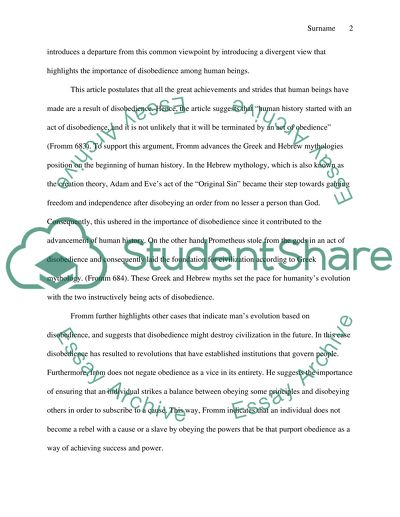Cite this document
(“Disobedience as a Psychological and Moral Problem by Erich Fromm Article”, n.d.)
Disobedience as a Psychological and Moral Problem by Erich Fromm Article. Retrieved from https://studentshare.org/psychology/1618820-authority
Disobedience as a Psychological and Moral Problem by Erich Fromm Article. Retrieved from https://studentshare.org/psychology/1618820-authority
(Disobedience As a Psychological and Moral Problem by Erich Fromm Article)
Disobedience As a Psychological and Moral Problem by Erich Fromm Article. https://studentshare.org/psychology/1618820-authority.
Disobedience As a Psychological and Moral Problem by Erich Fromm Article. https://studentshare.org/psychology/1618820-authority.
“Disobedience As a Psychological and Moral Problem by Erich Fromm Article”, n.d. https://studentshare.org/psychology/1618820-authority.


